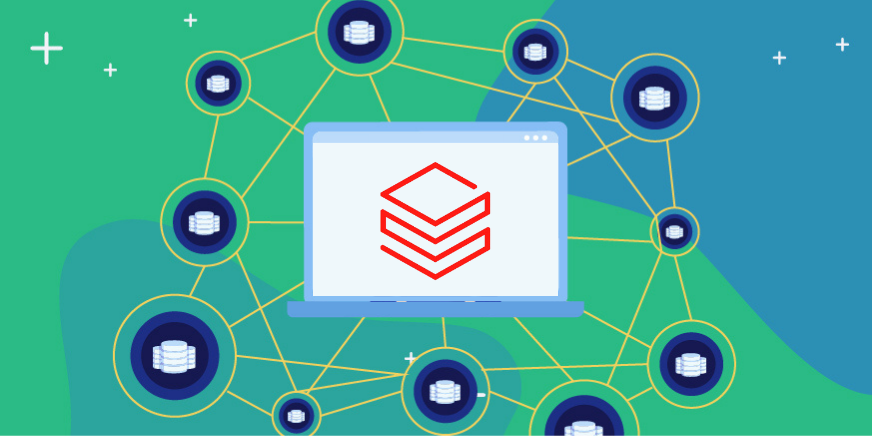The CCPA (California Consumer Privacy Act) is a comprehensive data privacy law that came into effect on January 1, 2020. The purpose of the law is to increase the security and control of personal information and provide transparency about the types of data covered entities collect, how it is used and shared, and to honor certain consumer rights related to the data.
To further strengthen the CCPA regulations, the California Privacy Rights Act (CPRA) were passed in November 2020. The CPRA amended and expanded the reach of the CCPA. Enforcement of any CCPA and CPRA violations occur through the newly established California Privacy Protection Agency, however, while the regulations initially passed in 2020 enforcement will only apply to violations after July 1, 2023.
Covered entities subject to the CCPA and CPRA are for-profit businesses (including brokers) that engage in business in California and meet ONE of the following conditions:
- Annual gross revenue of at least $25 million
- Process, buy, sell, or share personal information from 100,000 or more California residents, households, or devices
- Derive at least 50% of their profit by selling the personal information of California residents.
Satori’s Data Security Platform enables covered entities to implement the necessary data security requirements to protect PII. Satori provides a quick and easy solution to achieve CCPA and CPRA compliance while improving productivity and reducing costs.
What are the Specific CCPA & CPRA Regulations?
CCPA defines the regulations that covered entities operating in California must follow. Some of the key provisions of the law include:
- Right to know: Consumers have the right to know what personal information is being collected about them, and to receive certain information about the sources of the information, the purposes for which it is being collected, and the categories of third parties with whom it is being shared.
- Right to deletion: Consumers have the right to request that businesses delete their personal information. Businesses must honor these requests, subject to certain exceptions.
- Right to opt-out: Consumers have the right to opt-out of the sale of their personal information to third parties.
- Right to non-discrimination: Businesses may not discriminate against consumers who exercise their rights under the CCPA.
- Notice: Businesses must provide notice to California residents at or before the point of data collection regarding the categories of personal information that they collect and the purpose for which the information will be used.
- Data security: Businesses must implement reasonable security measures to protect consumers’ personal information.
The most important amendments to the CCPA are the CPRA which was passed in November 2020 with enforcement of this regulation starting July 1, 2023. The additional CPRA regulations include:
- Right to correct: Businesses must update any inaccurate consumer information.
- Right to limit: Businesses must disclose and indicate the use of any sensitive personal information (PII).
- Expands the categories of personal information that are subject to certain CCPA requirements
- Establishes a new category of “sensitive personal information.” Sensitive PII, for example, customers’ SSN, credit card number, geolocation, ethnicity, contents of text messages, or genetic data.
- Creates new obligations for businesses related to data retention, security, and breach notification
How the CCPA Relates to Data Security
The CCPA and its amendments, the CPRA, have a significant impact on data security. The regulations aim to protect consumers’ PII by requiring businesses to implement reasonable security measures to safeguard the data they collect, use, and share.
Under the CCPA and CPRA, businesses must implement appropriate technical and organizational measures to protect personal information from unauthorized access, disclosure, and destruction. These measures may include:
- Encryption and Access Controls: Businesses must implement technical measures to ensure that personal information is encrypted when transmitted over networks and that access to the information is restricted based on a “need-to-know” basis.
- Data Retention Policies: Businesses must establish and maintain reasonable data retention policies that limit the retention of personal information to what is necessary to accomplish the purposes for which it was collected.
- Incident Response Plans: Businesses must have appropriate incident response plans in place to address security incidents involving personal information, including data breaches.
- Employee Training: Businesses must provide regular training to employees and contractors on the company’s data security policies and procedures, as well as how to identify and report potential security incidents.
- Third-Party Vetting: Businesses must ensure that third-party service providers with access to personal information are contractually obligated to maintain appropriate security measures to protect the information.
There are significant fines and penalties for covered entities that are non-compliant with the CCPA and CPRA regulations. Non-compliance can result in legal and financial consequences, reputation damage, as well as business disruptions as the violations initiate enforcement action. Therefore, given the potential consequences of non-compliance with the CCPA, it is important for businesses to implement appropriate data privacy policies and procedures.
CCPA and CPRA Compliance with Satori
Satori’s data security platform that solutions help organizations comply with data privacy regulations. Here are some ways that Satori can help ensure compliance:
- Data Access Controls: Satori provides fine-grained self-service access controls that allow businesses to restrict access to sensitive data based on user roles and responsibilities. This helps ensure that only authorized users can access and use sensitive data, which is a key requirement under the CCPA and CPRA.
- Data Discovery and Classification: Satori automatically scans, discovers, and classifies sensitive data across an organization’s data stores. This helps businesses understand what data they have and where it is located.
- Data Access Monitoring: Satori’s Data Access Manager monitors user access to sensitive data and detect anomalous activity that may indicate a data breach or unauthorized access. This helps businesses identify potential security incidents and take appropriate action to mitigate risks.
- Compliance Reporting: Generate audit reports that provide insights into an organization’s data security posture and demonstrate compliance with CCPA and CPRA requirements. These reports can be used to demonstrate compliance to regulators and auditors.
Benefits of Using Satori to Meet CCPA and CPRA Regulations
Satori provides a convenient solution for covered entities seeking to attain and uphold CCPA and CPRA compliance without overburdening their engineering resources. With Satori’s just-in-time access controls, Data Access Controller, and Access Manager, both access control and audit necessities are fully covered. These features are easily integrated as an additional layer on top of the current data infrastructure, thereby minimizing the number of DevOps, data engineering, and security engineering staff needed to ensure compliance. Consequently, implementing and supervising compliance is streamlined, saving valuable resources and lowering organizational expenses.
Quick and Easy Compliance
Satori’s Data Security Platform is flexible, scalable, and is easy to implement as an add-on to existing data technology stacks. This empowers organizations to swiftly restrict access, audit and monitor PII usage, and enforce security policies. By facilitating swift CCPA and CPRA regulation compliance, Satori enables organizations to save significant amounts of time and resources necessary to maintain compliance.
Improved Productivity
Satori streamlines productivity for covered entities through the automated lifecycle management of data access, eliminating the need for manual permissions. With Satori’s frictionless self-service and just-in-time access controls data engineers can free up a significant amount of time that would otherwise be spent searching for sensitive data and managing access permissions. The quick and secure sharing of information reduces the time and resources necessary to achieve and maintain compliance.
Reduced Costs
Compliance is imperative for CCPA and CPRA covered entities to minimize the likelihood of a security breach. However, the question that arises is, how much does compliance cost?
Satori offers an efficient solution to help organizations achieve CCPA and CPRA compliance without placing undue strain on engineering resources. By integrating Satori as an add-on to existing data infrastructure, the amount of DevOps, data engineering, and security engineering hours required to implement and monitor compliance is reduced. This streamlines the compliance process, conserves resources, and reduces organizational costs.
Read more about the Benefits of a Consolidated Data Access Platform and How Automating Access to Data Enhances Customer Engagement & Trust.
Conclusion
The CCPA and CPRA requires covered entities to be transparent about their data security practices and provide consumers with information about the types of data collected, how it is used, and how it is protected. The CCPA and CPRA represent a significant shift in the way covered entities collect, use, and protect PII.
Satori’s solutions can help businesses comply with the CCPA and CPRA by providing tools to manage data security and privacy risks, monitor and control access to sensitive data, and generate compliance reports. By prioritizing data privacy and security, these regulations help to create a more transparent and secure digital environment.
To learn more about how Satori can help your organization become and remain compliant with CCPA and CPRA regulations book a demo with one of our experts.




